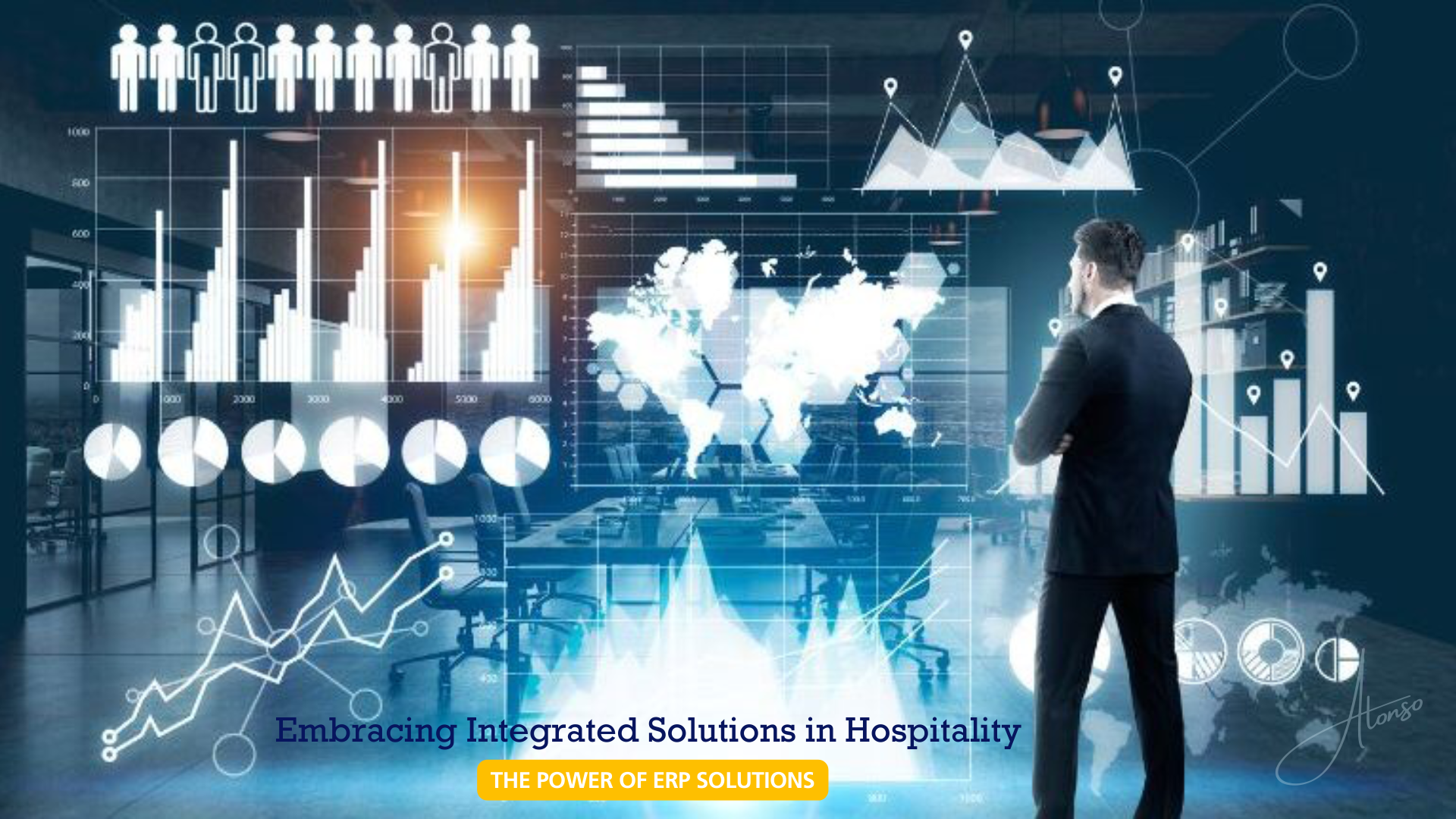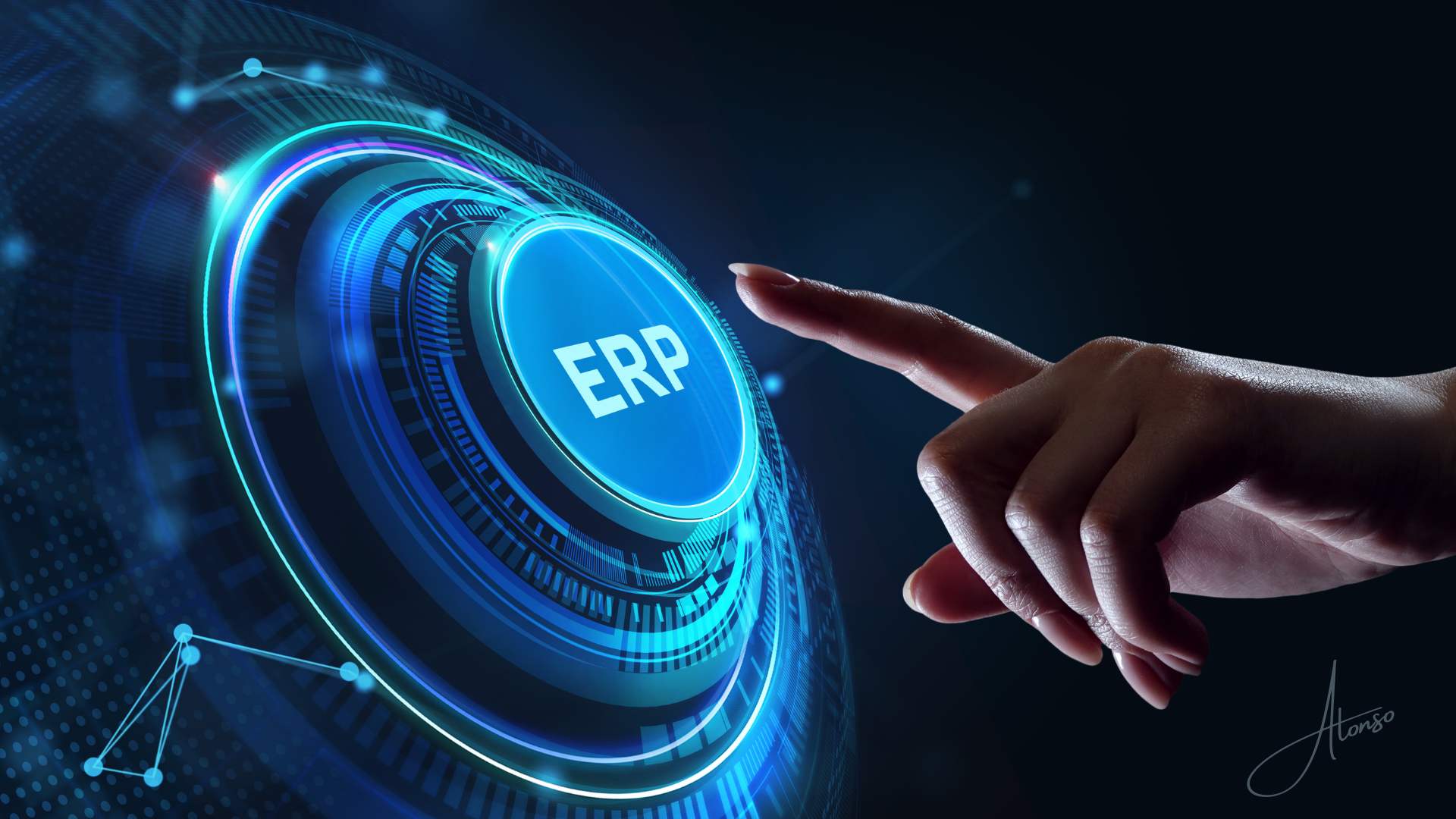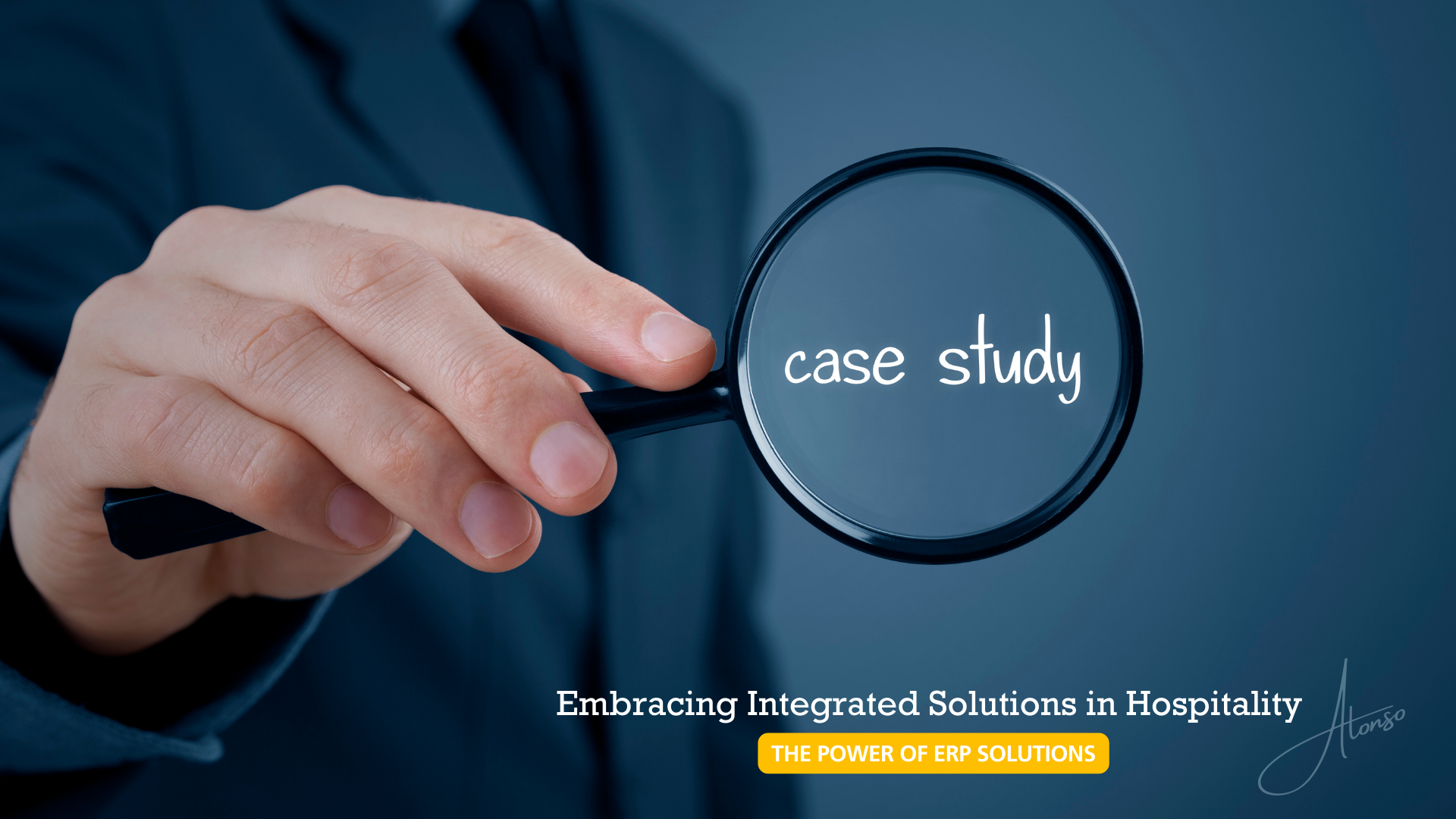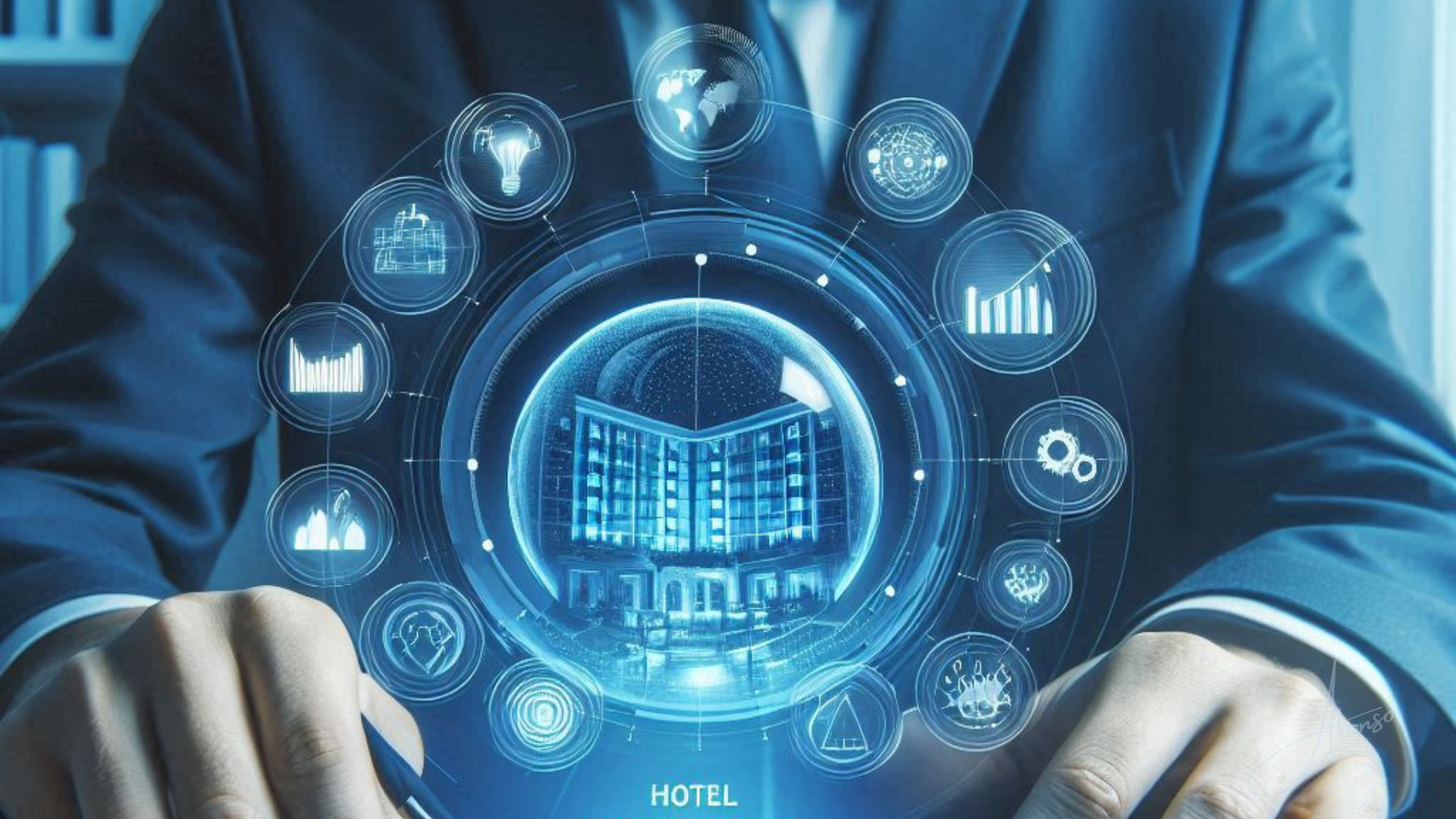Transform Your Hotel Operations: The Power of ERP Solutions in Driving Digital Change
Introduction
Amid the ever-changing landscape of hospitality, efficient management and seamless guest experiences are more crucial than ever. However, many hotels struggle with fragmented systems and data silos that hinder their ability to operate smoothly. A critical component of this efficiency is the seamless integration of various applications and systems used in hotel management. However, deploying applications without integration can lead to numerous challenges that hinder operational effectiveness and guest satisfaction.
This article explores these challenges, underscores the importance of integrated systems in hotel management, and highlights the role of Enterprise Resource Planning (ERP) solutions in driving digital change.
An ERP solution is the game-changing technology that integrates all aspects of hotel management into a cohesive, efficient system.
Join me in discovering how ERP can transform your hotel operations and secure your business's success in the digital era. Let's elevate your hospitality business together!
⛓️The Problem with Non-Integrated Applications
“Organisations with broken systems typically suffer from broken business processes and vice versa.” Why New Systems Fail, By Phil Simon.
- Data Silos and Inconsistency: When applications operate in isolation, data silos are created, leading to inconsistent and fragmented information across different departments. This can result in errors, delays, and discrepancies in data, affecting decision-making and reporting accuracy.
- Inefficiency and Redundancy: Non-integrated applications require duplicate data entry and manual data transfers, which are time-consuming and prone to errors. This redundancy wastes valuable staff time and resources that could be better spent on guest services and strategic initiatives.
- Poor Guest Experience Issue: Without integrated systems, staff may lack real-time access to critical guest information and preferences. This can lead to missed opportunities for personalisation, slower response times, and a less cohesive guest experience.
- Operational Bottlenecks Issue: Non-integrated applications can create bottlenecks in workflow and communication between departments. For instance, the housekeeping team might not receive timely updates from the front desk about room availability, leading to delays in room readiness.
- Limited Visibility and Control Issue: Disparate systems make it challenging for management to have a comprehensive view of operations. This lack of visibility hampers the ability to monitor performance, identify issues, and make informed strategic decisions.
🔗 The Benefits of Integrated Applications
“The proposed process designs should always be designed within the logic of the ERP systems.” Maximise Return on Investment Using ERP Applications, By Worster, Weirick Andera.
- Unified Data and Improved Accuracy Solution: Integrated applications ensure that all data is centralised and consistent across the organisation. This improves data accuracy, reduces errors, and facilitates better decision-making.
- Enhanced Efficiency and Productivity Solution: Integration automates data sharing between applications, eliminating the need for manual entry and reducing redundancy. This streamlines operations, frees up staff time, and allows employees to focus on delivering exceptional guest services.
- Superior Guest Experience Solution: Integrated systems provide staff with real-time access to comprehensive guest information. This enables personalised service, quick resolution of issues, and a seamless guest experience.
- Optimised Operations Solution: Integration improves communication and coordination between departments. This ensures smooth workflows, timely task completion, and overall operational efficiency.
- Comprehensive Operational Insights Solution: An integrated system offers a holistic view of all hotel operations, from bookings and housekeeping to finances and customer feedback. This comprehensive visibility allows for proactive management, performance tracking, and strategic planning.

Integrating Solutions into a Digital Ecosystem
🔆 The Role of ERP Solutions in Digital Change
Implementing an ERP solution is a powerful way to achieve the integration needed for optimal hotel management and operations. ERP systems consolidate various business processes into a single, unified system, ensuring seamless data flow and operational coherence. Here's how ERP solutions facilitate digital change:
- Centralized Data Management Benefit: ERP systems centralize data from all departments, providing a single source of truth that enhances data accuracy and decision-making.
- Automated Processes Benefit: Automation of routine tasks such as maintenance scheduling, inventory tracking, and financial reporting reduces manual effort and minimizes errors.
- Enhanced Collaboration Benefit: ERP solutions foster better communication and collaboration across departments, ensuring everyone has access to the same information and can work towards common goals.
- Scalability and Flexibility Benefit: ERP systems are scalable and can be customized to meet the evolving needs of a hotel, supporting growth and adaptation to market changes.
- Improved Customer Relationship Management Benefit: By integrating customer data, ERP systems enable personalised service and targeted marketing efforts, enhancing guest satisfaction and loyalty.
⚙️ STEPS to Achieve Integration with ERP
- Assess Current Systems Evaluate existing applications to identify integration gaps and areas for improvement.
- Choose the Right ERP Solution Select an ERP system that offers robust integration capabilities and suits the specific needs of your hotel.
- Plan and Execute Integration Develop a clear integration plan, including timelines, resources, and responsibilities. Ensure a phased approach to minimize disruption.
- Train Staff Provide comprehensive training to ensure staff are proficient in using the integrated system and understand its benefits.
- Monitor and Optimize Continuously monitor the integrated system's performance and make necessary adjustments to optimize its effectiveness.
 Turn ON the Power of an ERP Solution
Turn ON the Power of an ERP Solution
📊 Current Use of ERP in Hotels: Data and Figures
Adoption Rates:
- According to a 2023 survey by Hospitality Technology, around 57% of hotels globally have implemented an ERP solution, reflecting a steady increase in adoption as more hoteliers recognize the benefits of integrated management systems.
- A study by Techavio predicts that the global hotel and hospitality management software market, which includes ERP systems, is set to grow by USD 848.83 million from 2022 to 2026, at a CAGR of 9.45%.
Benefits Realised:
- Operational Efficiency: Hotels using ERP systems report a 30% improvement in operational efficiency due to streamlined processes and better resource management (source: Hospitality Technology).
- Cost Reduction: On average, hotels see a 15-25% reduction in operational costs within the first year of ERP implementation, thanks to improved inventory management and reduced wastage (source: Software Advice).
Functional Integration:
- Data Management: 75% of hoteliers cite improved data management and reporting capabilities as the primary benefit of ERP systems, which enables better decision-making and strategic planning (source: Hospitality Net).
- Customer Experience: Hotels report a 20% increase in customer satisfaction scores due to more personalised services and seamless guest experiences facilitated by integrated ERP solutions (source: HTNG).
Challenges and Considerations:
- Implementation Costs: Initial investment in ERP systems can be substantial, with 45% of hotels indicating budget constraints as a primary barrier to adoption (source: PwC Hospitality).
- Training and Change Management: Successful ERP deployment requires significant training and change management efforts, with 60% of hotels stating that employee resistance to change is a major challenge (source: Deloitte).
Future Trends:
- Cloud-Based Solutions: The shift towards cloud-based ERP solutions is accelerating, with 70% of new ERP deployments in the hospitality sector being cloud-based by 2025 (source: Gartner).
- AI and Automation: Integration of AI and automation in ERP systems is expected to further enhance efficiency and guest personalisation, with a projected 40% increase in adoption of AI-driven ERP features by 2025 (source: Forrester Research).

Case Studies of ERP Implementation in the Hospitality Industry
🔎Case Study 1: Oceanview Resort & Spa | Miami, Florida
Overview: Oceanview Resort & Spa, a luxury hotel with 150 rooms, several restaurants, a spa, and conference facilities, faced significant challenges in managing its operations due to fragmented systems and manual processes. To streamline operations and improve guest satisfaction, the management decided to implement an ERP solution.
Results:
- Centralized Data Management: Achieved a unified database with real-time access to accurate and consistent information across all departments.
- Operational Efficiency: Reduced manual data entry by 70%, significantly decreasing errors and freeing up staff time. Automated routine tasks such as inventory tracking and maintenance scheduling, resulting in a 40% improvement in operational efficiency.
- Enhanced Guest Experience: Leveraged integrated guest data to offer personalized services, leading to a 20% increase in guest satisfaction scores. Enabled quick resolution of guest issues with real-time access to comprehensive guest information.
- Financial Accuracy: Improved financial reporting accuracy by 30%, providing management with better insights for strategic decision-making. Streamlined budget management and reduced financial discrepancies.
- Operational Insights: Provided management with a holistic view of operations through comprehensive reporting and dashboards. Enabled proactive management and strategic planning with real-time performance monitoring.
🔎 Case Study 2: Naomi Hotels | Australia, New Zealand & Singapore.
Overview: Naumi Hotels, a group of independent boutique luxury hotels, faced challenges with fragmented systems and manual processes that hindered their expansion and operational efficiency. The introduction of Oracle NetSuite ERP led to significant improvements.
Results:
- Financial Efficiency: Achieved a 66% reduction in time needed to close financial reports and a 50% reduction in time for consolidation across all hotels.
- Enhanced Data Visibility: Enabled better financial visibility, automated processes, and supported their growth strategy, particularly during the COVID-19 pandemic, when remote access to real-time data became crucial.
 Integrating Solutions
Integrating Solutions
📌 FINAL THOUGHTS AND CONCLUSIONS
Deploying applications without integration poses significant challenges to hotel management and operations. Data silos, inefficiency, poor guest experiences, operational bottlenecks, and limited visibility can all undermine a hotel's success. Embracing integrated applications, particularly through a comprehensive ERP solution, is essential to overcoming these challenges. By streamlining operations, enhancing guest experiences, and providing comprehensive operational insights, integrated ERP systems empower hotels to thrive in the competitive hospitality landscape.
The digital transformation enabled by ERP solutions not only improves operational efficiency but also elevates the overall guest experience, ensuring sustained success in a rapidly evolving market.
The adoption of ERP solutions in hotels is driven by the need to integrate various management systems, improve operational efficiency, and enhance guest experiences. As digital transformation continues to shape the sector, the adoption of these integrated solutions is expected to rise, enabling hotels to stay competitive and deliver exceptional guest experiences.
The current landscape of ERP use in hotels shows a growing trend towards embracing digital transformation. As more hotels adopt ERP systems, they experience significant improvements in operational efficiency, cost management, and customer satisfaction. While challenges remain, particularly around implementation costs and change management, the benefits of a well-integrated ERP system are compelling. Moving forward, innovations in cloud technology and AI will continue to shape the future of ERP solutions in the hospitality industry, driving further advancements and competitive advantage.
👍 IF YOU ENJOYED THIS ARTICLE AND WANT MORE CONTENT LIKE THIS:
- Subscribe to this NEWSLETTER to get notified when a new issue comes out (biweekly).
- You can also connect with Yuri Hidalgo Alonso on LinkedIn, Instagram, and X
- If you want to get in contact with Yuri Hidalgo Alonso, please email us at solutions@guruti.es
...Building the Future of Hospitality ...
Transform Your Hotel Operations: The Power of ERP Solutions in Driving Digital Change